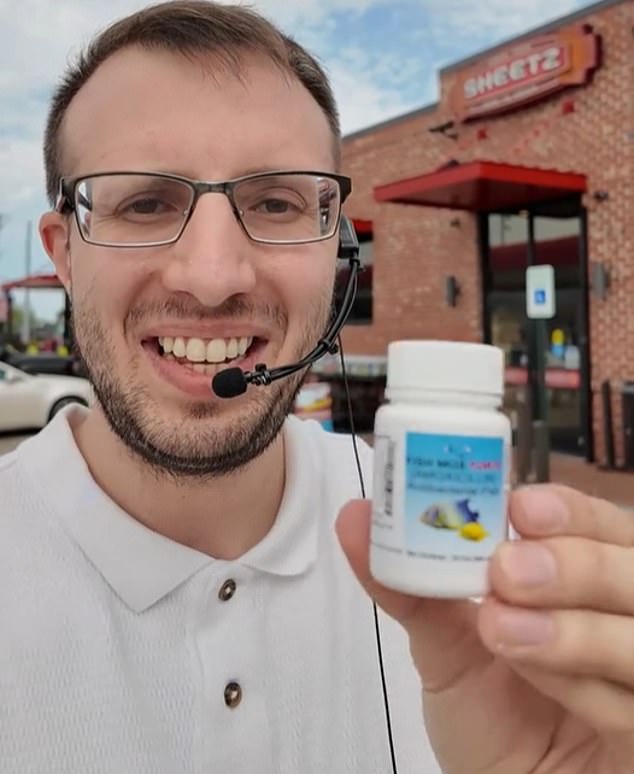A pharmacist has revealed the biggest over-the-counter drug ‘scam’.
Dr. Grant Harting, licensed pharmacist and founder of Crush Costsaid that five drugs found in most American pharmacies are not worth buying because of their high cost or ineffectiveness.
Common medications for sleep, allergies, and even memory are on the list of over-the-counter medications considered “complete and utter garbage.”
Dr. Harting also shared a list of better and cheaper medications that do the same thing, but better.
First on the list of failed products was ZzzQuil, an over-the-counter sleep aid from the makers of DayQuil and NyQuil.
Sold in syrup form, ZzzQuil contains the active ingredient diphenhydramine, an antihistamine used to treat common allergic reactions.
Dr. Harting noted that while there is nothing wrong with the drug, which costs $12 a bottle, there is nothing that separates it from less expensive brands.
He said: “It’s not really a scam because it’s effective, but it’s just an antihistamine mixed with alcohol.”
DR MYTH BUSTER: Licensed pharmacist and TikTok star Dr Grant Harting has revealed medications he believes are a scam.
‘What I usually recommend to people are just the Dollar Tree versions. “They are much more profitable.”
The Mayo Clinic also recommends only using sleep antihistamines like ZzzQuiil occasionally, as the brain quickly adapts to them and relies on them to fall asleep.
Diphenhydramine sleep medications have also been shown to cause drowsiness, dizziness, headaches, dry mouth, and constipation, among other side effects.
Dr. Harting also warned against Colace, a laxative that contains the active ingredient docusate.
Docusate is intended to soften stools and treat occasional constipation.
However, Dr. Harting pointed to a 2021 study in the American Journal of Gastroenterologywhich analyzed seven studies on docusate published between 1956 and 2021.
The researchers found that none of the studies showed a significant difference between docusate and placebo when tested in people with constipation.
The team wrote: ‘It is a mistake to think that docusate softens hard stools in case of constipation. The totality of clinical evidence shows that docusate is no different from placebo.’
Instead, Dr. Harting recommended fiber supplements with psyllium husk, a plant-based source that can be found in brands like Metamucil and Benefiber.
Mucinex is also on the list. This medicine uses the active ingredient guaifenesin to help thin mucus and help clear it when you cough.
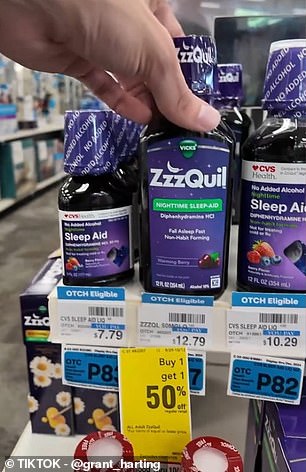
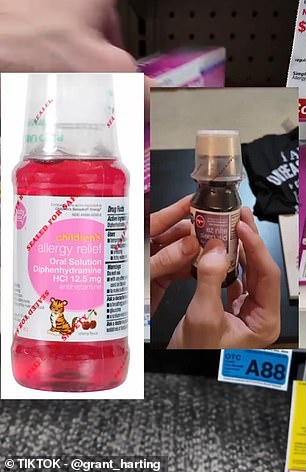
Dr. Harting suggested switching from ZzzQuil (left) to a generic version to avoid high costs.
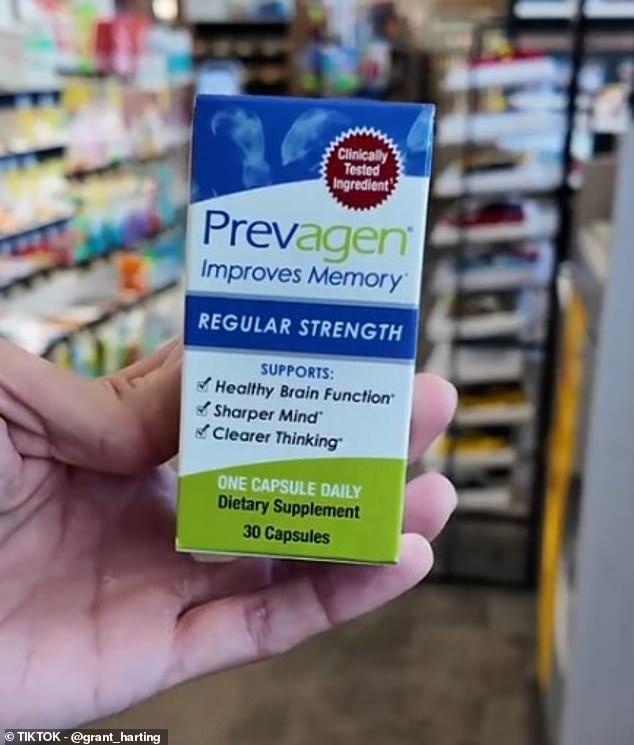
Dr. Harting called the memory supplement Prevagen (pictured) a “scam” that “just doesn’t do anything.” In 2017, the supplement’s marketers were accused of false advertising.
Ranging in price from $17 to $40, depending on size, Dr. Harting called the drug a “racket” and noted a recent study testing it in adolescents and adults with respiratory infections such as bronchitis.
The research found no difference in cough compared to a placebo.
Dr. Harting said: “This is simply not helpful in removing dirt from the lungs.”
Instead, she suggested using a saline nebulizer, an inhalant available by prescription, or using a generic liquid decongestant, since they are more calming.
Next on the list of scams was Sudafed, an over-the-counter cough and cold medication that uses the active ingredient phenylephrine.
A recent FDA review found that phenylephrine is no more effective than a placebo because when it is metabolized in the intestine, it cannot reach the bloodstream in sufficient levels, making it useless in providing relief.
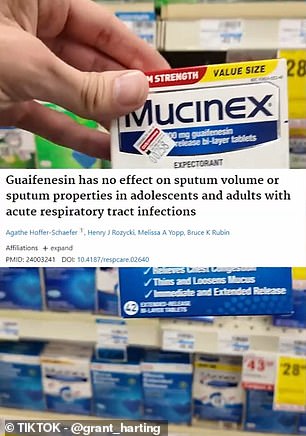
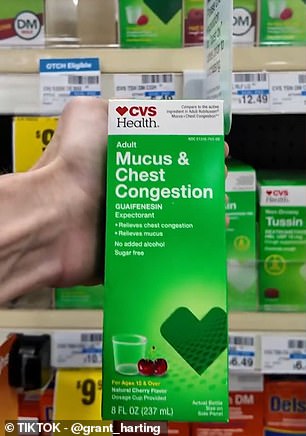
Dr. Harting also called Mucinex (left) a “racket” and suggested a generic version (right) or a saline nebulizer.
This has led the FDA to call for the withdrawal of Sudafed from pharmacies.
Dr. Harting called over-the-counter Sudafed “complete rubbish” that “just doesn’t work.”
He suggested using prescription-only Sudafed, which uses the active ingredient pseudoephedrine.
However, he noted that it has been linked to high blood pressure.
The last medication was Prevagen, a supplement that claims to improve memory and cognition. It costs between $40 and $70 depending on the number of capsules.
In 2017, the Federal Trade Commission and the New York State Attorney General accused Prevagen marketers of false advertising and called the memory-enhancing claims “clear fraud.”
Dr Harting said: ‘Prevagen is a scam, period. It just doesn’t do anything.’


